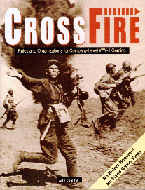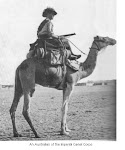
Just as a follow up to my earlier post about Patrols in the Sudan. I finished reading (and rereading) these rules and am still just as impressed as before. But I wanted to clarify a few points. These rules are designed for (for lack of a better word) guerrilla attacks on patrols of regulars and thus would not be suitable (in their pure form) for larger set-piece battles. Now that's not a weakness in my book since most Colonial Rules are (i.m.h.o.) completely unable to deal with this very type of warfare.
- First of all, no one wants to paint figures and then only put them on the table for a round of melee. Through it's split placement, terrain removal and scouting mechanisms PITS allows figures to be on the table even when "hidden".
- Secondly, those same mechanisms allow a better simulation of the uncertainties faced by regular European troops in an environment where the enemy's situation is unknown.Though it might feel weird for some terrain to disappear or appear out of nowhere it does integrate the uncertainties of Patrolling and the fact that seemingly innocuous landscape features may harbor unknown danger.
- Thirdly one is not hampered by overly large units. If you want you can use a large 21 figure TSATF sized unit, but(more typically)you will be using a company broken into smaller detachments.
- How one would deal with savvy colonial Auxiliaries (such as the Armed Constabulary of New Zealand, Sikhali Horse of Natal, Punjab Frontier Force, etc.) in PITS I'm not sure, but I would guess that a simple bonus to Scouting rolls would suffice.
Which campaigns would PITS be suitable for?
- Any Eastern American warfare pitting Europeans against various Indian nations (Pontiac's War, for example).
- Campaigns against the Maroons of the Caribbean and South America (for example, Jamaica mid 18th century)
- NW Frontier
- Apache Wars
- Maori Wars of the late 1860s
- Ashante Campaign
- As well as all the other campaigns I mentioned in my earlier post.
(The photo shows Gilbert Mair, of the NZ Armed Constabulary, one of Te Kooti's primary opponents.)





